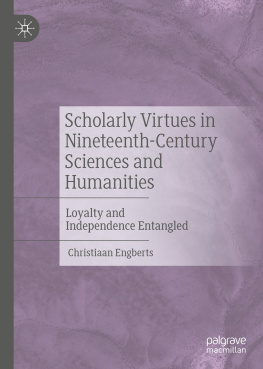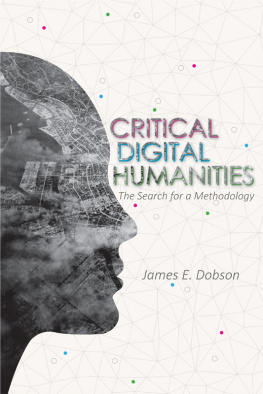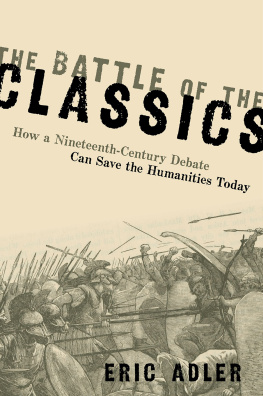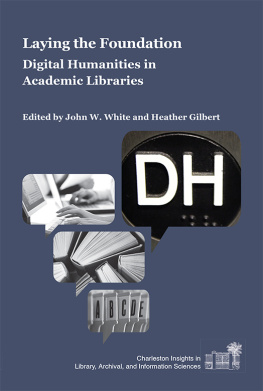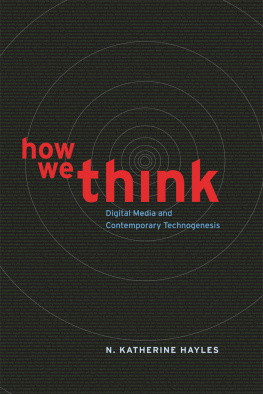Energy Humanities
Energy Humanities
An Anthology
Edited by Imre Szeman and Dominic Boyer

2017 Johns Hopkins University Press
All rights reserved. Published 2017
Printed in the United States of America on acid-free paper
Johns Hopkins University Press
2715 North Charles Street
Baltimore, Maryland 21218-4363
www.press.jhu.edu
Library of Congress Cataloging-in-Publication Data
Names: Szeman, Imre, 1968 | Boyer, Dominic.
Title: Energy humanities : an anthology / edited by Imre Szeman and Dominic Boyer.
Description: Baltimore : Johns Hopkins University Press, 2017. | Includes bibliographical references.
Identifiers: LCCN 2016019648| ISBN 9781421421889 (hardcover : acid-free paper) | ISBN 9781421421896 (paperback : acid-free paper) | ISBN 9781421421902 (electronic) | ISBN 1421421887 (hardcover : acid-free paper) | ISBN 1421421895 (paperback : acid-free paper) | ISBN 1421421909 (electronic)
Subjects: LCSH: HumanitiesPhilosophy. | Power resourcesSocial aspects. | Power resourcesPhilosophy. | Power resourcesPolitical aspects. | Power resourcesMoral and ethical aspects. | Fossil fuelsSocial aspects. | Nuclear energySocial aspects. | PetroleumSocial aspects.
Classification: LCC T14 .E58 2017 | DDC 333.79dc23 LC record available at https://lccn.loc.gov/2016019648
A catalog record for this book is available from the British Library.
Special discounts are available for bulk purchases of this book. For more information, please contact Special Sales at 410-516-6936 or specialsales@press.jhu.edu.
Johns Hopkins University Press uses environmentally friendly book materials, including recycled text paper that is composed of at least 30 percent post-consumer waste, whenever possible.
Contents
Acknowledgments
Critical engagements with energy have taken many forms and have multiple origins. The beginning point of this project in the energy humanities dates back to March 2013, when two key sites of research on energy and culturethe Center for Energy and Environmental Research in the Human Sciences (CENHS) at Rice University and the Petrocultures Research Group at the University of Albertafirst had an opportunity to share ideas and resources. Since then, members of each group have collaborated on a number of research and writing projects, including The Rise of the Energy Humanities, the 2014 op-ed in University Affairs that gave an emerging field of research the name it now bears. The present volume owes its life first of all to those researchers at CENHS and in Petrocultures who have contributed to development of this emergent field, including Bill Arnold, Lynn Badia, Brent Bellamy, Gwen Bradford, Joe Campana, Adam Carlson, Ann Chen, Cecily Devereux, Fars el-Dahdah, Randal Hall, Cymene Howe, Richard Johnson, David Kahane, Jordan Kinder, Jeff Kripal, Caroline Levander, Elizabeth Long, Carrie Masiello, Cyrus Mody, Tim Morton, Albert Pope, Alexander Regier, Matthew SchneiderMayerson, Derek Woods, and Jack Zammito.
We thank the distinguished visiting scholars and guest lecturers at CENHS and Petrocultures, each of whom has also helped give form and substance to energy humanities, including Paolo Bacigalupi, Darin Barney, Ursula Biemann, Warren Cariou, Dipesh Chakrabarty, Tom Cohen, Paul Edwards, Jn Gnarr, Akhil Gupta, Graham Harman, Gabrielle Hecht, Brenda Hillman, Dale Jamieson, Eric Klinenberg, Stephanie LeMenager, Graeme Macdonald, Mika Minio-Paluello, Timothy Mitchell, Laura Nader, Naomi Oreskes, Karen Pinkus, Doug Rogers, Antti Salminen, Suzana Sawyer, Kristin Shrader-Frechette, Allan Stoekl, Bron Taylor, Anna Tsing, and Marina Zurkow. A special thanks to Sheena Wilson, cofounder and codirector of Petrocultures, and to Michael ODriscoll and Mark Simpson, who have been at the center of the After Oil research initiative at the University of Alberta. Their energies on behalf of energy have been infectious, multiplying possibilities in ways that the first law of thermodynamics suggests should be impossiblewhich is true, too, of the work of Jennifer Wenzel, who has also played an essential role in bringing greater attention to the study of energy. Special thanks also to the Rice University Provosts Office for ongoing support of CENHS and energy humanities in general.
This book benefited from the great enthusiasm of Matthew McAdam, Senior Humanities Editor at Johns Hopkins University Press, who understood the aims and ambitions of this project from the very beginning. Thanks to David Janzen, who helped us with permissionsan essential task for a book project like this oneand Miriam Mabrouk, who assisted with copy-edits. A special shout-out goes to Jeff Diamanti for feedback on the introduction and section introductions.
Finally, a huge shout-out goes to Justin Sully, who performed the same magic here that he has on any number of projects. This volume would not have found its way into print without his efforts on our behalf.
Energy Humanities
Introduction: On the Energy Humanities
Imre Szeman and Dominic Boyer
Energy Humanities: An Anthology brings together research that attends to the social, cultural, and political challenges posed by global warming and environmental damage and destruction. As the title suggests, the pieces collected here focus on a specific issue in relation to todays environmental challenges: energy. The use and abuse of energy have had a significant impactperhaps the most significant impacton the shape in which we find the planet today. This is especially the case when it comes to the use of fossil fuelsfirst coal, and then oil and natural gas. The pieces brought together here address the social as well as environmental consequences of energy once it gets industrialized across the globe. This volume makes a strong case for why it is essential to better understand the import and impact of energy when it comes to trying to puzzle out how we might address global warming. It does so not by pointing out that we remain dependent on forms of dirty energy that continue to increase the level of CO2 in the atmosphereor not only by doing so: for most of the planets inhabitants, this is no longer a mystery. Rather, Energy Humanities draws critical attention to the fact that energy is absolutely necessary for modern societies. To be modern is to depend on the capacities and abilities generated by energy. Without the forms of energy to which weve had access and which weve come to take for granted, we would never have been modern. We are citizens and subjects of fossil fuels through and through, whether we know it or not. And so any meaningful response to climate change will have to tarry with the world and the people that have been made from oil.
This strong equation of energy and modernity has two consequences. First, it necessitates a fundamental reconsideration of our understanding of the forces that have given shape to modernity. Our dominant narrative of the modern combines the expansion of rights and freedoms, the advent of scientific insights and technological innovations, and the ballooning of capitalist economies, holding these very different spheres of social life together under the sign of progress in a powerful way. The work of critical theory in the humanities and social sciences has been to pull apart the clunky (albeit effective) apparatus of an enlightened modernity, exposing the multiple fictions of this narrative and bringing to light the truths of the modern buried beneath the shiny drama of progress that proclaims that each year is better (richer, bigger, freer) than the one before it. That rights and freedomswhen and where they exist at allhave to take place through a process of Kantian maturation, rather than being enabled all at once, points to the limits of a liberalism born in the Industrial Revolution rather than speaking to its supposed self-evidence; and as critics of colonialism and postcolonialism have repeatedly shown, the progress and growth of the global North have been made possible only by centuries of exploitation of the people and resources of the global South.
Next page

